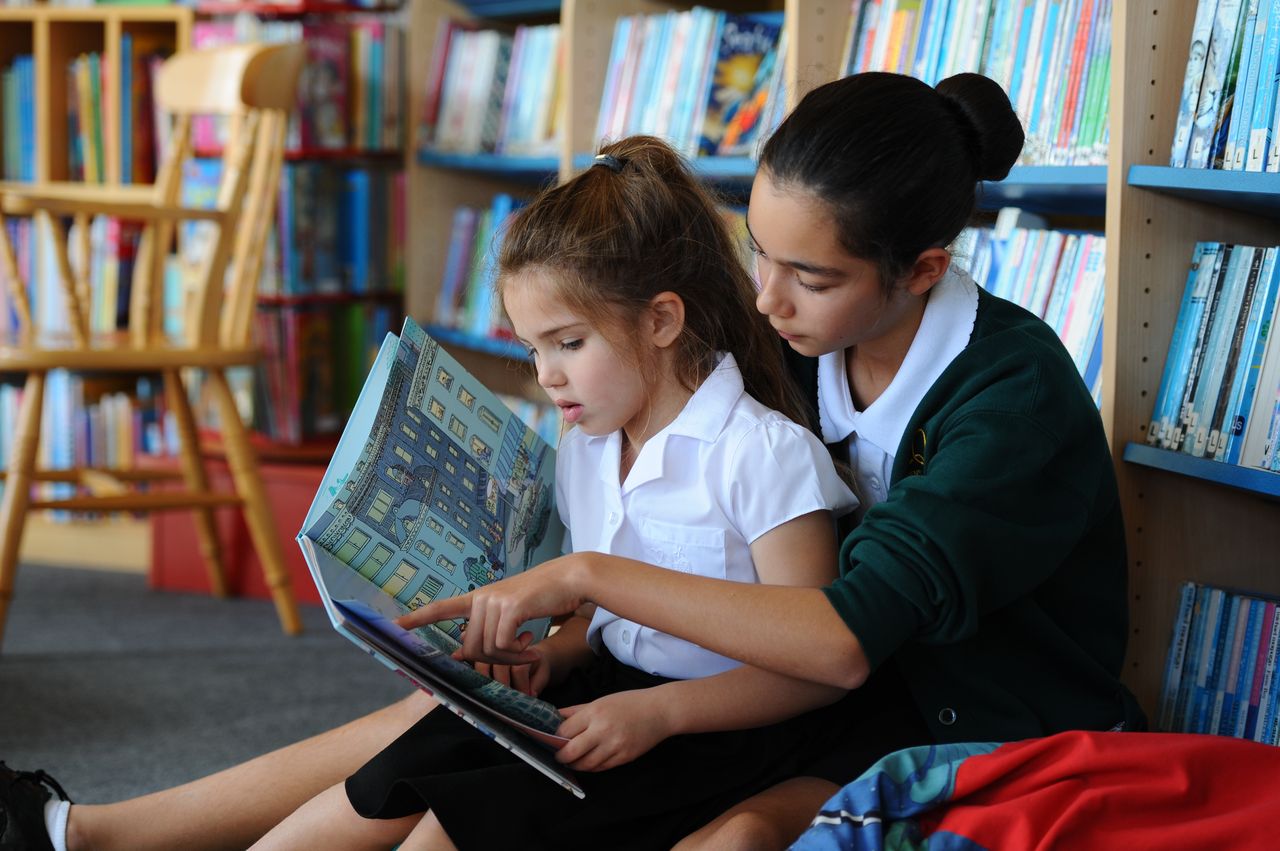Special Educational Needs and Disabilities (SEND)
SEND - Inclusion Leader
Our Inclusion Leader is Mrs McClung who can be contacted via the office for an appointment or through email SEND@queensinclosure.hants.sch.uk The role of the Inclusion Leader includes:
- Overseeing the day-to-day operation of the school SEND Policy
- Supporting the identification of children with Special Educational Needs
- Co-ordinating provision for children with SEN
- Liaising with parents of children with SEN
- Liaising with other providers, including outside agencies.
- Ensuring the school keeps records of all children with SEN up to date
- Supporting Learning Support Assistants (LSAs) in delivering appropriate interventions to meet the needs of learners
- Ensure children with SEN are able to engage in all activities available to children without SEN
SEND Information Report 2023-24
SEND Information Report - July 2024
What the report covers:
This report will include information about what school offers to children with SEND (Special Educational Needs and Disabilities). This report is a requirement of the SEN Code of Practice.
The SEND Local offer:
Hampshire’s Local offer is available at www.hantslocaloffer.info and will provide you with information about services available to your child.
SEND - Inclusion Leader:
Our Inclusion Leader is Mrs McClung who can be contacted via the office for an appointment or through email SEND@queensinclosure.hants.sch.uk The role of the Inclusion Leader includes:
- Overseeing the day-to-day operation of the school SEND Policy
- Supporting the identification of children with Special Educational Needs
- Co-ordinating provision for children with SEN
- Liaising with parents of children with SEN
- Liaising with other providers, including outside agencies.
- Ensuring the school keeps records of all children with SEN up to date
- Supporting Learning Support Assistants (LSAs) in delivering appropriate interventions to meet the needs of learners
- Ensure children with SEN are able to engage in all activities available to children without SEN
Areas of Need:
|
The Code of Practice states that are 4 main areas that cover Special Educational Needs:
|
|||||||||||
Transition:
For all our children, a transition programme is put in place, which includes visits to their new schools for Year 6. If there are particular concerns about a child then additional visits may be made. In addition to this, meetings are held to discuss individual children’s needs and plans and reports are passed on to the next school. Handover within school happens on a yearly basis where key information is shared and passed between school staff. Where outside agencies are involved they may also be part of transition meetings.
Training:
Throughout the year there are termly staff meetings or INSET days that are used to deliver in-house SEN training for both teachers and Learning Support Staff. When there is a particular need, outside agencies are also employed to deliver training. LSAs who deliver specific interventions have training to support their role.
Internal Agencies
With parental consent, the following specialist support employed by the school may be consulted to support a child:
- Child and Family Support Worker
- Springboard – Speech and Language Therapists
- Educational Psychologist
Outside Agencies:
At times, it may be necessary to consult with outside agencies. The following list shows examples of agencies we may use:
- Hampshire Educational Psychologist
- NHS School Nursing Team
- NHS Occupational Therapist
- Children’s Services
- Primary Behaviour Support Team
- Speech and Language Therapist
- Hearing Impairment Team
- Visual Impairment Team
- CAL – Communication and Language Team
Frequently Asked Questions
How do you identify children with special needs?
If the teacher is noticing any of the elements below, they may raise a concern with the Inclusion Leader:
- The child’s learning may not reflect their verbal ability
- They may need special access arrangements to complete learning or require tasks to be adapted at a different level to their peers
- The child’s progress may stall
- They may demonstrate a sudden (or gradual) change in their behaviour
However, all children may require additional support at some point in their school journey, so often they just need an additional intervention for a specific period.
If a child has been identified as a concern, they may need to be added to the SEN register; this will be done in consultation with the child’s parents and class teacher.
What should I do if I think my child has a special need?
Talk to your child’s class teacher about your concerns. We value your opinions and appreciate that you know your child best. Your child may already be receiving support within the classroom and just need a higher level of support. If you continue to be concerned please contact our SEND Inclusion Leader.
How will my child be assessed?
All children are assessed throughout the year in a range of areas. If appropriate, a child with SEN may be dis-applied from formal assessments and alternative approaches will be considered - usually Teacher Assessment. The annual formal assessments are indicated below:
- Twice a year reading ages are measured using the SALFORD reading test in KS1 and NFER in KS2
- Year 1 children complete the Statutory Phonics Screening Check
- Year 2 children have SATs in Reading, Writing and Mathematics
- Children in Years 3, 4 and 5 complete the NFER maths and reading assessments.
- Year 6 children have SATs in Reading and Mathematics
Children with SEN are continually tracked during the year to ensure that they are meeting the high expectations set by the school.
PLP (Personalised Learning Plans) are in place for all children with SEN and targets are reviewed termly in consultation with parents and children.
Some children may also be assessed to identify their specific needs through a variety of specialist assessments e.g. LASS, COPPS, Dyslexia portfolio, BLANK Language.
How will the curriculum be matched to my child’s needs?
All teachers are teachers of children with SEN, therefore all children with SEN receive quality first teaching. In the SEND Code of Practice, it is very clear that there should be high expectations for all children, including those with SEN. We use the following tools to adapt our teaching for all children, including those for SEN:
- Visual pictures/folders
- Visual Checklists and timetables
- Breaking tasks down into smaller chunks.
- Simplifying the task
- Clicker/typing
- Physical resources e.g. spell checker, Numicon
- Ear defenders
- Quiet learning stations
- Screens
- Pencil grips
- Different coloured paper/books and coloured overlays
- Classroom Interactive Whiteboards with different coloured backgrounds
- Pre-teaching/over learning
- Memory aids
All teachers have access to a document that shows the issue a child may have and how best to support them. When further advice is needed to support differentiating the curriculum outside agencies may be used.
How are children with SEN enabled to engage in the activities available for learners in the school who do not have SEN?
All activities are adapted to meet the needs of our SEN learners and no one would be excluded unless in exceptional circumstances, a risk assessment determines it to be too dangerous. If this is the case an alternative activity would be provided in agreement with parents and carers.
How will I know how my child is doing, and how can I become involved?
- Participating in Parent Consultations by telephone or at Parents’ Evenings
- PLP meetings (extra time given at Parents’ Evenings)
- When requested - attending meetings with external agencies
- When requested - attending meetings with the SEN Inclusion Leader
- Through your child’s annual report
- If your child has an EHCP (Education Health Care Plan) you will be invited to attend an Annual Review and possibly additional interim review meetings
- Requesting a meeting at any time, to discuss any concerns you may have
How will you support my child?
As set out in the Code of Practice, the school provides a graduated response dependent on the child’s level of need.
The majority of children are supported within class through quality first teaching, examples of this include, adapting tasks, focussed group work, additional adult support, use of specific resources or technology and providing a range of alternative techniques for recording learning.
For some children, in addition to quality first teaching, they may require time-limited interventions. The length of the interventions may vary, some are aimed at individuals and others are aimed at small groups. They are usually delivered by an LSA who has been specifically trained for this purpose. All these interventions are tracked, recorded and evaluated for effectiveness. Examples of these interventions are:
- Gross and Fine Motor Skills – Solent Therapy Pack
- Precision Teaching for reading or spelling
- Speech and Language Programmes – following recommendations from Springboard or NHS
- Lego Therapy
- Star Spell
- Fisher Family Trust
- Project X Code
- Memory Skills
For children with more complex needs, some additional one-to-one support may be provided which is generally part of an Education Health Care Plan, agreed by the Local Authority. Whenever possible some of this allocated time will be used to create specific resources to allow the child to learn independently.
When taking Year 6 SATs, special arrangements may be put in place to support children with SEN. These could include, extra time, rest breaks or additional adult support. All requests need to be agreed in advance by the DFE.
What support is available for my child’s well-being?
Within school, there is a Wellbeing Team which is overseen by the Assistant Headteacher - Miss Packham. The Team use a variety of interventions to support the children and allow them a safe environment to develop their emotional literacy skills. Within these sessions children are given opportunities to share their own views and listen to those of others. The children are also given this opportunity within class, as are all the children, in their PDL lessons including discussions about bullying.
Miss Farrell, our Child and Family Support Worker, supports any parents who may be dealing with challenging behaviour within the home. The school operates a Care Code system which allows children to collaboratively problem-solve any difficulties they are having and find solutions. They are encouraged to ‘check their choices’, ‘always try to be safe’, ‘respect everything’, ‘understand that everyone matters’ and to ‘treat everyone with kindness’.
How can I help my child at home?
Your teacher may give specific recommendations on how to support your child at home. The most important way to help your child is by reading with them on a regular basis. We have included a range of strategies on our website for your reference. If you would like further ideas, please do contact us and we will be happy to help.
Will my child views be heard?
We value all children and throughout each day they are given the opportunity to share and express their views. Within our school there is a School Council, which welcomes children with additional needs and the Council members are keen to represent their whole class.
For children with specific plans and EHC Plans in place, they are encouraged to contribute to their plan and share feedback on their progress.
What are the arrangements for handling complaints from parents of children with SEN about the provision made at the school?
This very much depends upon the type of complaint. If the complaint is about in-class provision then the parent should first speak to the class teacher and then speak to the SENDIL. If the complaint was about wider school provision then they should communicate with the Head Teacher in the first instance and if they still had concerns, they would be encouraged to contact the Chair of Governors.
The complaint's procedure follows the County Policy and is available from the School Office.
SEN Support for Parents
Hampshire County Council Parent Guides to Special Educational Needs.
Useful websites for parents:
https://www.hampshiresendiass.co.uk/ - an impartial Special Educational Needs and Disability Information, Advice and Support Service (SENDIASS) that aims to make a positive and lasting difference for children and young people with special educational needs and/or disability (SEND) and their parents and carers.
https://fish.hants.gov.uk/localoffer - Hampshire Local Offer
https://hampshirecamhs.nhs.uk/ - Child and Adolescent Mental Health Services (CAMHS) are an NHS service that aims to help young people up to the age of 18. Their website features lots of helpful tools to support parents and children.
http://www.hpcn.org.uk/ - Hampshire parent career network for help children with and without a diagnosis.
https://www.autismhampshire.org.uk/ - A website to support parents and professionals with children with Autism.









